92 F. high in the Twin Cities Tuesday.
30 days at or above 90 F. so far in 2012.
76 F. average high for September 4.
71 F. high on September 4, 2011.
Rain possible early today, but skies should quickly clear out and dry out behind a cool front.
40-degree dew point by this evening, meaning half as much water in the air above MSP as yesterday.
.30" rain showers predicted for Friday (00z NAM
model).
 WRF Solution
WRF Solution.
After a soggy start skies slowly clear across Minnesota later today,
showers and T-storms pushing into Wisconsin and the Chicago area. Heavy
showers and T-storms sprout this afternoon from Hartford to Atlanta -
more potentially heavy downpours for DNC festivities in Charlotte.
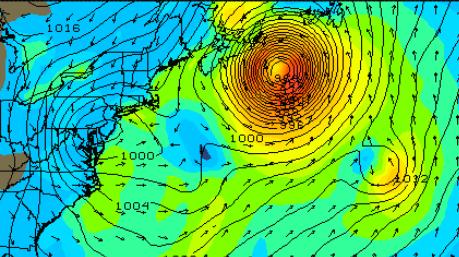 Hurricane Leslie.
Hurricane Leslie.
For now it appears that Hurricane Leslie will spare New England, but
Nova Scotia and Prince Edwards Island, Canada may not be so lucky.
Bermuda may be struck by hurricane-force winds later this week. GFS
solution above valid on September 11 (the day when hurricanes are most
likely to reach land over the USA).
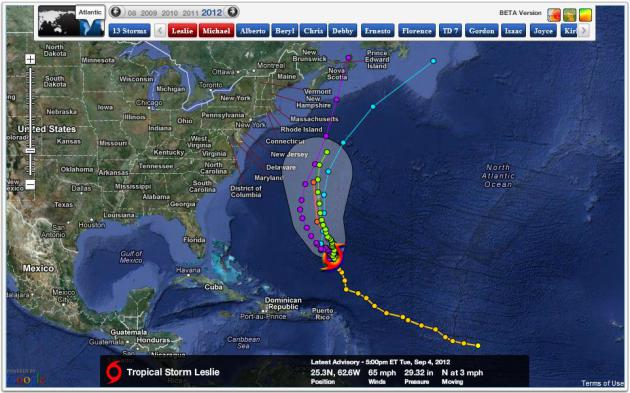 Leslie's Track.
Leslie's Track.
Models show an eventual drift to the north/northeast, away from coastal
New England. With water temperatures over the North Atlantic 5-10 F.
warmer than average, I wouldn't be surprised to see Leslie reach the
Canadian Maritimes as a significant hurricane early next week. Map: Ham
Weather Alerts Broadcaster. More information on Leslie from
NOAA NHC.
46 days at or above 90 F. in Chicago. All-time record: 47 days in 1988.
101 F. heat index in Des Moines Tuesday.
“
I am not a scientist myself, but my best assessment of the data
is that the world is getting warmer, that human activity contributes to
that warming, and that policymakers should therefore consider the risk
of negative consequences,” Romney said in response to a question about
climate change.
....Romney stops short, however, of accepting
that human beings’ consumption of fossil fuels is the main cause of
climate change. “There remains a lack of scientific consensus on the
issue — on the extent of the warming, the extent of the human
contribution, and the severity of the risk,” he wrote." - excerpt from a story at the
L.A. Times.
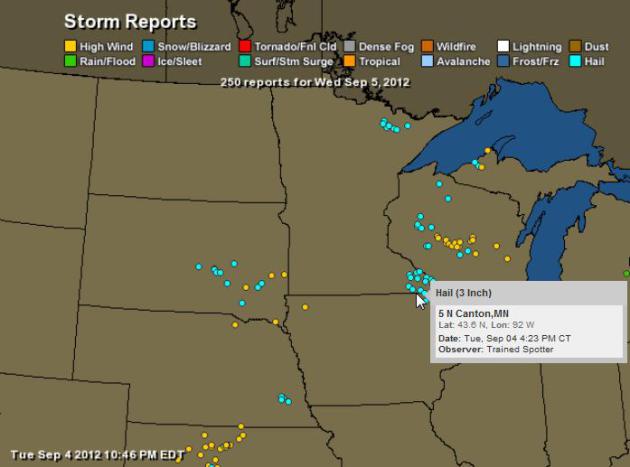 Tuesday Severe Storm Reports
Tuesday Severe Storm Reports.
3" diameter hail at Canton, Minnesota? That'll put a ding in your
Prius. There were numerous reports of large hail over southeastern
Minnesota, and straight-line wind damage over central Wisconsin. An
interactive map from Ham Weather
here.
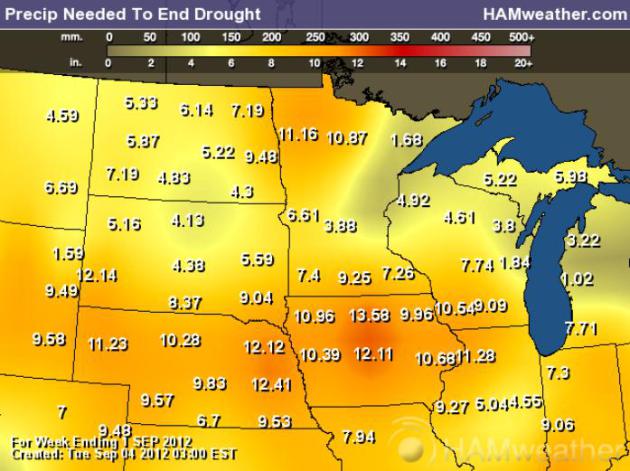 Rainfall Required To Ease Drought.
Rainfall Required To Ease Drought. This map, courtesy of NOAA
and
Ham Weather, puts things into better perspective. Over 9" of rain is
required near Austin and Albert Lea to pull out of the drought, closer
to 11" over the Red River Valley. Portions of Iowa and Nebraska are even
drier.
Isaac Proved Hard To Forecast. No kidding. The
models were all over the place, but in fairness, most of the models did
show Isaac doing a loop out over the Gulf of Mexico, prolonging the
storm surge and torrential rains across Louisiana. Here's an excerpt of
an article at
Herald-Tribune: "
Hurricane
Isaac was a close call for Florida and a cause for worry much longer
than usual, given recent improvements in storm predictions. Forecasters
missed the mark on several occasions as Isaac moved through the
Caribbean and into the Gulf of Mexico. They predicted Isaac would
become a hurricane before striking the Florida Keys or Southwest
Florida. They also forecast that it would travel much closer to the
state than it did and eventually hit the Panhandle. From nearly the
entire Florida coastline to Texas, Isaac had people worried about a
landfalling hurricane. The storm made millions nervous, forced the
Republican National Convention to be delayed last week, and exposed some
classic problems with hurricane forecasting."
Top 6 Myths, Facts About Flood, Hurricane Insurance. Here's a very timely article from
ABC News: "
Hurricane
Isaac is yet another reminder that flooding is the country's number
one natural hazard, according to the National Flood Insurance Program,
which Congress created in 1968. As Hurricane Isaac came ashore, its
strength as a Category 1 hurricane was weaker than that of Hurricane
Katrina, which hit seven years ago. But in both storms, flooding was
the main cause of damage."
Photo credit above: Mike Kittrell/Press-Register/AP Photo.
Hurricane Forecasters Eager For New Tool In Space.
New satellites are in the pipeline that will help hurricane forecasting,
and allow meteorologists to track lightning strikes from low orbit. One
concern: possible budget cuts at a federal level. Here's more from
Spaceflight Now: "
Two
satellites orbiting 22,300 miles above Earth kept Hurricane Isaac in
their sights as it churned toward Louisiana, giving meteorologists
clues on the storm's wandering course and intensity....NOAA is preparing
forecasters for a new series of spacecraft with advanced imagers and
more robust instruments designed to further reduce forecasting
blunders. "The next big thing on the horizon is the next generation of
GOES, which is GOES R starting in 2015, and there will be another step
up in what we can do with weather monitoring and hurricane analysis,"
said Mark DeMaria, a NOAA researcher specializing in the use of
satellite observations in hurricane forecasting." Image above: NOAA.
State, Local Storm Costs Are Mounting. Details from
The News Star; here's an excerpt: "
By
the time Hurricane Isaac crossed the border into Arkansas as a
tropical depression Thursday, Louisiana state government had spent
almost $57 million preparing for its arrival and handling some of its
impact. Now that the storm is gone and crews begin the cleanup while
still dealing with flooding and other consequences, the costs
are expected to climb sharply, says Gov. Bobby Jindal. Local government
costs also are rising, he said, and as of Friday morning they had
invested $10.1 million in storm-related work." Photo above: Brownsville, Texas National Weather Service.
"Ask Paul". Weather-related Q&A:
Paul,
These
photos were taken from our canoe on the Mississippi River north of
Little Falls near Fort Ripley. My mother used to call these mares'
tails, was she right? Are they unusual? Thank You,
Ann Grunke
Ann
- these are cirrus clouds and that's snow falling out those wisps of
ice crystals about 25,000 feet above the ground, evaporating as they
fall toward Earth, swept along by jet stream winds. It's a fairly common
sight ahead of a storm or frontal boundary - but you captured a
particularly good example!
Cauliflower Cumulus. The National Weather Service in Jackson, Mississippi captured this photo of a sprouting cumulonimbus on Tuesday.
Survey: More People Using Mobile Apps During Emergencies. Which is all fine and good, until the cell towers go down. But the trends are undeniable, as reported in this article at
Palm Harbor Patch: "
Americans
are becoming increasingly reliant on mobile devices during emergencies
as a lifeline for information, a source for useful tools, and a way to
let loved ones know they are safe, according to a new survey conducted
by the American Red Cross. Mobile apps now identify social media as
the fourth most popular way to get information in an emergency,
following TV, radio and online news. The Red Cross survey found that 20
percent of Americans said they have gotten some kind of emergency
information from an app, including emergency apps, those sponsored by
news outlets and privately developed apps. "People are using social
media to help others during emergencies by spreading useful
information," said Linda Carbone, CEO for Florida's West Coast Region." Image above: Ham Weather.
A Geologist Finds Deeper Meaning In Noah's Flood. Here's a clip from a very interesting article at
The Salt Lake Tribune: "
University
of Washington geologist David R. Montgomery sees twin sources of
divine knowledge: "what God made, and what God wrote." Unfortunately,
Montgomery tells interviewer Brook Wilensky-Lanford at religiondispatches.org"
believers and academics often pit the two — science and religion —
against each other, rather than exploring their intertwining. For
centuries, the geologist says there was a "tradition of faith in the
world around us, a belief that God didn’t create an incomprehensible
universe. And [creationists have] just walked away from that. It’s bad
theology dressed as science." Image above: Wikipedia.
Saturn And Titan In Living Color. Here's an excerpt of a fascinating article at gizmag.com: "It
will soon be spring on Saturn ... and it will last for the next eight
years or so. To celebrate the slow passing of the seasons of the giant
ringed planet, NASA has released four real-color images sent back by the
Cassini
space probe. The images not only show the seasonal changes, but also
the mysterious vortex recently discovered at the south pole of Saturn’s
largest moon, Titan."
Photo credit above: "Saturn and Titan." (Image: NASA/JPL-Caltech/SSI)
An Even 30.
Tuesday was the 30th day at or above 90 F. this year. Average (if
anyone asks...doubtful) is 13 days. Highs ranged from 86 at Alexandria
to 89 St. Cloud, 92 at MSP International and downtown St. Paul.
Paul's Conservation Minnesota Outlook for the Twin Cities and all of Minnesota:
TODAY: Rain tapers early, then rapid clearing with a cooler, gusty wind. Winds: NW 10-20. High: 75
WEDNESDAY NIGHT: Clearing and cool. Low: 57
THURSDAY: Comfortable sun, less wind. Winds: NW 10-15. Dew point: 45. High: 77
FRIDAY: Feels like September. More clouds, showers likely cool breeze. Low: 58. High: 67
SATURDAY: Cool sunshine. Dew point: 41. Low: 49. High: near 70 (60s outside the metro).
SUNDAY: Sunny and milder. Perfect. Low: 54. High: 75
MONDAY: Summer not over yet! Warm sun. Low: 56. High: near 80
TUESDAY: Clouds increase, still lukewarm. Low: 59. High: 78
* 50s and 60s return for highs the latter half of next week behind the next (colder) front.
Hot Flash
So here I sit, watching the ice melt over the North Pole. We reached a
new record ice minimum 2 weeks ago, with another 2-3 weeks of melting
left to go. I'm all for coincidence and serendipity, but the trends are
overwhelming. 2012: warmest year on record, to date, for Minnesota.
Warmest rolling 12-month period. 3rd warmest summer, but July was the
second hottest month since 1891.
Yes, the UK had a cool summer, but looking at the entire Northern Hemisphere, warming has been pervasive. It's not just the USA.
I'm still worried about drought. It's expanding north and east. Lake
water levels are falling, sugar maples are yellowing prematurely, due to
dry weather. Sunday at the State Fair it looked like a mini Dust Bowl
kicking up. We need rain.
So I won't complain about T-storms today; the best chance of puddles
this morning. Cool exhaust on the backside of the front drops highs into
the 60s and low 70s the latter half of the week. It will finally start
to feel like September.
A sunny, comfortable weekend gives way to a warming trend next week, before another (colder) shot by week's end.
"Leslie" should spare New England, brushing Nova Scotia in 1 week.
* photo above: Steve Burns.
Climate Stories...
Wild Weather Is The New Normal And Insurance Companies Must Act. Here's a clip from a story at
Think Progress: "
Severe weather has been clobbering insurance companies, and the headlines just keep coming. “Drought to cost insurers billions in losses,”
said the Financial Times a few days ago. “Many U.S. hurricanes would
cause $10b or more in losses in 2012 dollars,” the Boston Globe said
about the latest hurricane forecasts. “June’s severe weather losses near
$2 billion in U.S.,” said the Insurance Journal earlier this year. This
year’s extreme events follow the world’s costliest year ever for
natural catastrophe losses, including $32 billion in 2011 insured
losses in the United States due to extreme weather events. This is no
short-term uptick: insured losses due to extreme weather have been
trending upward for 30 years, as the climate has changed and populations
in coastal areas and other vulnerable places have grown."
On Thin Ice: Time-Frame To Save The Arctic Is Melting Away. Renew Economy has the troubling details: "
Something
extraordinary is happening when graphs of melting Arctic sea-ice have
their vertical axis redrawn because the data are falling off the chart.
But that’s what has occurred in the last 10 days, since the extent of
floating Arctic sea-ice broke the satellite-era minimum record
on 24 August. On that date it was 4.2 million square kilometres,
according to data from the Japan Aerospace Exploration Agency. Since
then, an additional half a million square kilometres of sea-ice has
melted. The extent on 4 September was just half of the average minimum
extent of the 1980s. At the current rate of loss, with one to three
weeks left in the northern melt season, the minimum may well shrink
below 3.5 million square kilometres. This is an astounding story."
Graph credit above: "
Arctic sea-ice volume 1979–25 August 2012." Data: PIOMAS. Graph: L. Hamilton
Climate Change Breaks The Ice; 3-Man Sailboat Makes Record Voyage. The amazing (and deeply troubling) story from
The Los Angeles Times; here's an excerpt: "
Warming
global temperatures and melting polar ice caps have helped a trio of
explorers go where few men have gone before. In an account of their
voyage posted Monday, the crew of the 31-foot Belzebub II — a
fiberglass sailboat with a living space the size of a bathroom —
described how they crossed through the M’Clure Strait in northern
Canada, a decreasingly ice-packed route through the famed Northwest
Passage. The international three-man crew — an American, Canadian and
Swede — claim to have piloted the first sailboat to do so."
Climate Change, Irreversibility, And Urgency. Here's a clip from Dr. Richard Sommerville at
thebulletin.org:
- Two decades after the Earth Summit in Rio de Janeiro, most
governments have agreed that limiting the increase in the average
surface temperature of the Earth to 2 degrees Celsius above
pre-industrial levels would represent a tolerable amount of global
warming.
- But the annual amount of human-caused global emissions of
carbon dioxide, the main greenhouse gas driving climate change, is now
about 50 percent larger than in 1992.
- A failure to reduce carbon dioxide emissions significantly
within the next decade will have large adverse effects on the climate
that will be essentially irreversible on human timescales.
Climate scientists like to think of themselves as wise planetary
physicians, explaining to the world what they have learned about
climate and advising humanity on how to cope with the challenge of
climate change. This metaphor can also appear attractive to
policymakers and the public. Consider the appealing similarities
between deciding what you should do about your weight and what the
world should do about global warming. You can ask your doctor's
opinion, but it is you who will determine your target weight. You can
also ask your physician to recommend actions to reach that target. You
can then experiment with diet and exercise, evaluate the results, and
make changes. Throughout the process, you are in charge, and the
physician's role is simply to advise.
Obama, Romney Answer Top American Science Questions. Here's an excerpt of a revealing interview of both Gov. Romney and President Obama at
sciencedebate.org: "
President
Barack Obama and his challenger Governor Mitt Romney have answered the
Top American Science Questions. Their answers can be compared at http://www.sciencedebate.org/debate12/.
The questions focus on fourteen key policy
issues that, while among the most important, usually get short shrift
on the campaign trail. They include the candidates views of climate
change, vaccinations, food safety, energy, education, space, and
several other politically charged science issues. Notable highlights
include a shift in Romney's policy toward climate change away from his
more recent position of “My view is we don’t know what’s causing climate
change on this planet...” back toward his view in June of 2011 when
announcing his run for president. However Romney's ideas about what to
do about the problem are not clear. They contrast with Obama's, who
says he has specifics plans and is taking specific steps such as
doubling fuel economy standards, but who was unable to get a
cap-and-trade bill through congress."
Obama-Biden Campaign Awakening To Climate Change As Political Issue? Here's a snippet from an article at
getenergysmart.com: "
For too long, the Democratic Party “machine” has been eerily silent when it comes to the scientific consensus on climate change and the risks that catastrophic climate chaos creates for America and Americans.
While much has been said and heard on ‘clean energy’ and ‘green
jobs’, the words “climate change” and “global warming” have almost
seemed to disappear from the Democratic Party’s lexicon as the
Republican Party headed into ever-more extreme rejection of science
with embrace and promotion of fossil-foolish global warming denialism.
Thus, when it came to political leadership, the voice in the Village
Square has been overwhelming shrill rejection of scientific knowledge."
Climate Change Rate Said To Kill More Species Than It Creates. The story from
slashgear.com; here's an excerpt: "
This
week evolutionary ecologist Peter Mayhew has presented a set of
findings which show the rate of climate change in the Earth to be
detrimental to the number of species of animals on our planet. While
findings in the past have shown that periods of warmth on our blue
globe have also been times when the number of different species of
animals has risen, the speed
at which the Earth is warming here in the present is, as Mayhew
suggests, too rapid for the increase in species to outweigh the number
of species that are becoming extinct. The new study Mayhew presents
works with a new way of looking at the number of species in each
geological period studied with only well-sampled periods rather than
with simple tallies of the first and last appearances of each species."
The Six Stages Of Climate Grief. When do we get past denial and anger and eventually get to acceptance? That's what I want to know.
Think Progress has the story; here's an excerpt: "
Now
that the hottest summer on record is drawing to a close, are we any
closer to admitting that climate change is upon us? If not, why not? It
might have something to do with the five stages of grief. Elisabeth
Kubler-Ross identified these stages as denial, then anger, followed by
bargaining, depression, and acceptance. With record drought killing
our cattle and our corn, West Nile virus sweeping the country, and
Arctic ice sheets melting away, it’s no surprise that millions of
people are responding to these frightening signs of environmental
decline in stages. Nobel Laureate Steve W. Running first proposed
this frame for understanding the popular response to climate change in
2007. I’d like to go one step further and suggest a sixth stage: The
Work."
If A TV Weathercaster Went Off Script. One of these days (soon) something like this will happen. Another post from
getenergysmart.com: "
What if (in the vein of Network
and “I’m mad as hell and not going to take it anymore”) a weather
forecaster went truly off script and expressed, with the passion it
merits, the seriousness of our climate situation? With that question in
mind, here is a look at what the Labor Day weekend forecast should have
been in a reality-based world. The American Meteorological Society (AMS) recently updated its climate change statement which is substantive, long, and worth reading. Forecast the Facts
is working to foster more serious climate discussion by meteorologists
while shining light who propagate falsehoods about climate science."
Romney's New Global Warming "Joke". Here's an excerpt from a story (and history of U.S. renewable energy initiatives - and failures) from
consortiumnews.com: "....
Reagan
slashed the National Renewable Energy Laboratory’s budget by 90
percent, halved the Energy Department’s conservation and alternative
fuels budget, eliminated the wind investment tax credit, reduced
spending on solar photovoltaic research by two-thirds, slashed energy
tax credits for homeowners, and reduced fuel-efficiency standards for
cars. “Due largely to Reagan’s policy reversals on alternative energy,
the United States fell far short of Carter’s goal of getting 20 percent
of its energy from renewable sources by 2000, achieving about only
one-quarter of that target, even less than what Carter’s policies had
achieved by the early 1980s. …“Indeed, for those who understand the dire
threat of catastrophic climate change and the curse of America’s
continued addiction to fossil fuels, ‘A Road Not Taken’ can be a
painful documentary to watch. It may be even more painful for our kids
and grandkids to watch this film in a world that already is on its way
to 11 degrees F warming (or
more) by the end of the century. Scratch that. It won’t be painful to
watch a movie. It will be painful to live in such a world."
Photo credit above: "
Republican presidential candidate Mitt Romney speaking in front of closed Solyndra plant."



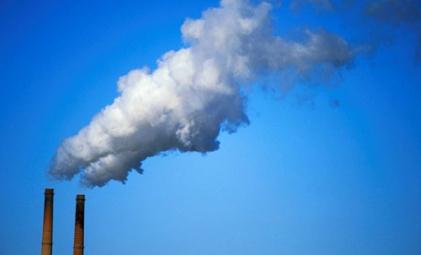
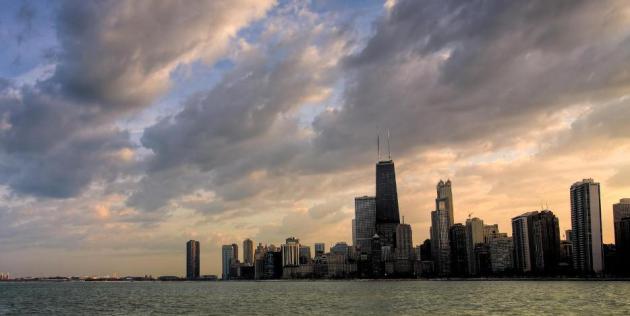


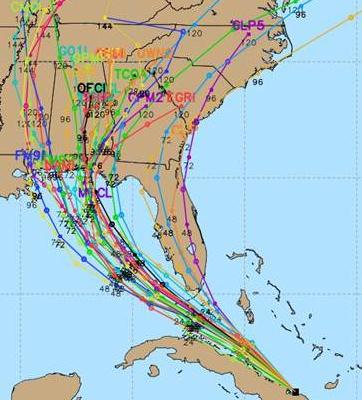
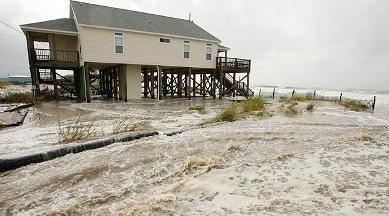
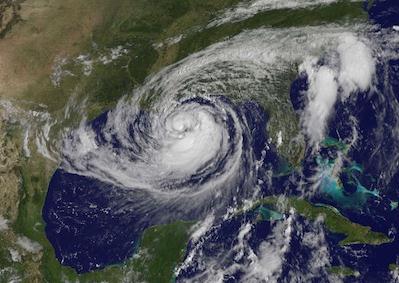
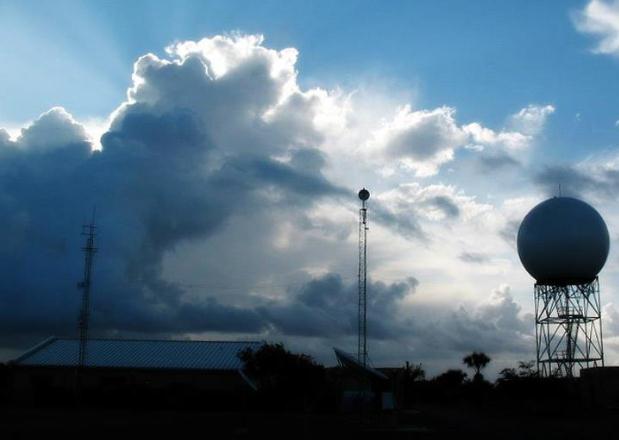
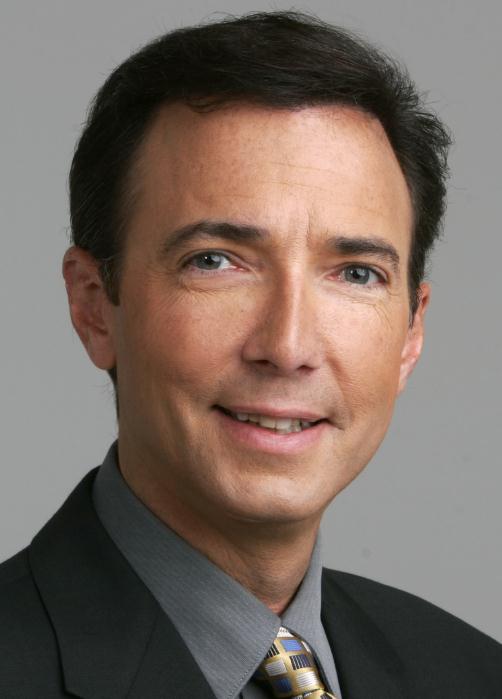
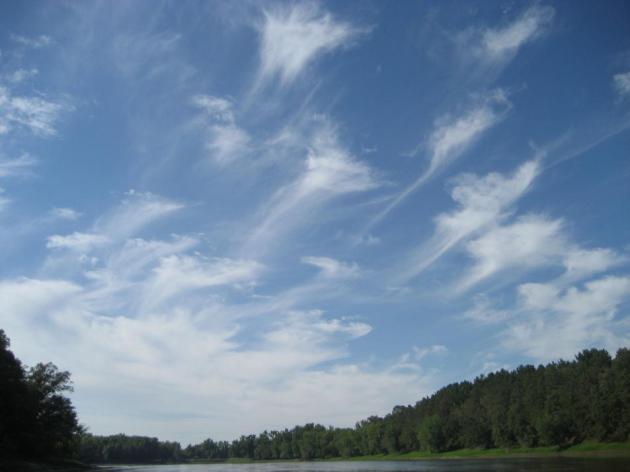
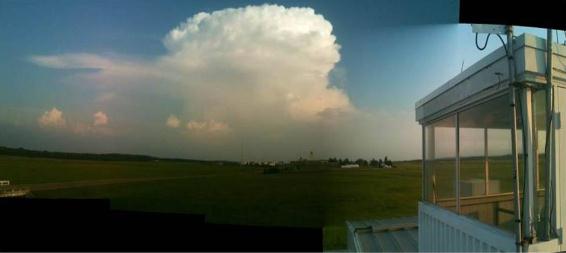
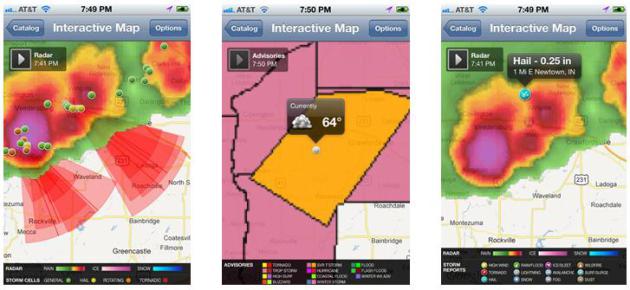


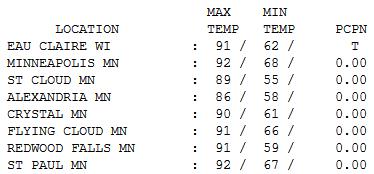
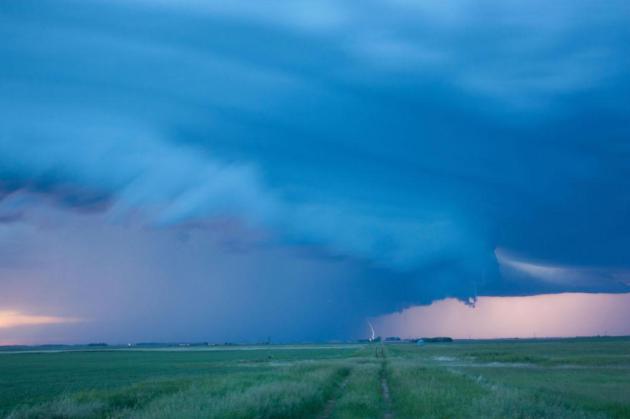
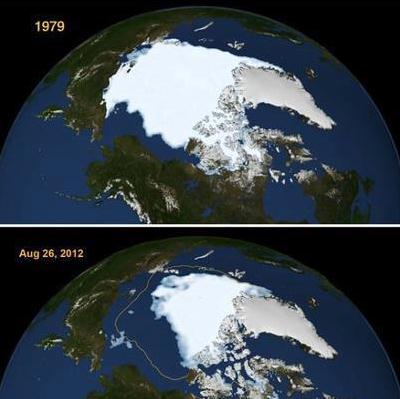
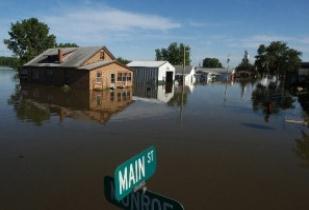
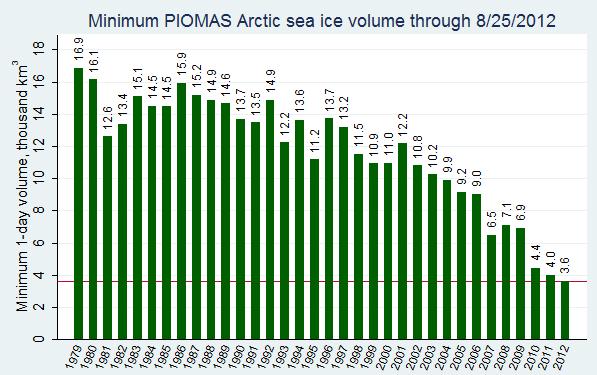
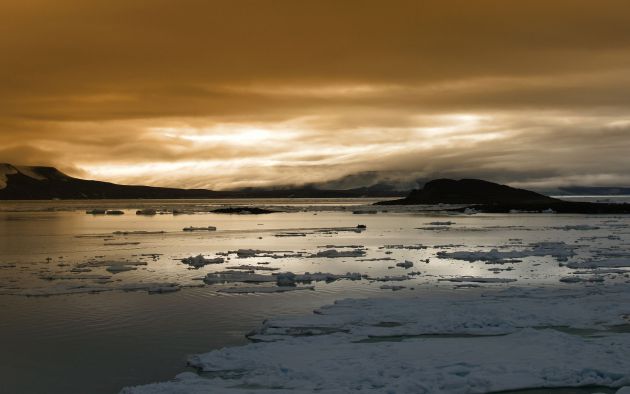



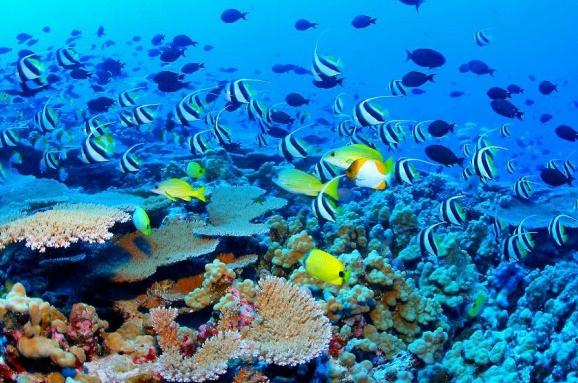

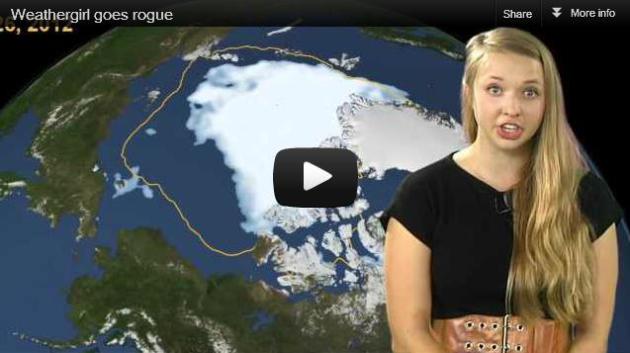

Hi Doug, Guten Abend Herr Kruhoeffer! Drove by the Pelican Lake place over the weekend Hope you are well. Also a friend sent me this. Rogue Weather report.
ReplyDeleteWeathergirl goes rogue
https://www.youtube.com/watch?v=TmfcJP_0eMc&feature=player_embedded
Wonder if you repost stuff like this. All the best. Tom AKA Tom Weaver
Oh wait, You did post this already. I can't keep up with the weather. Thanks for your comment "went truly off script and expressed, with the passion it merits, the seriousness of our climate situation? With that question in mind, here is a look at what the Labor Day weekend forecast should have been in a reality-based world"
ReplyDeleteI agree there Doug. Thanks for staying up to date. I am simplifying my life. Wichozani wo wokiya. Please keep telling the truth. People are waking up!
Hey Paul! Can you blog about what your prediction for when the first frost will be this year? How about snow? Is it going to be hot until Halloween then snow?:)
ReplyDelete